Functions, Events Generating Mountains of Trash? This Startup Will Help Stop That
"The fire raged on for a few days and the smoke lingered within the house for days after the incident. That was when, for the first time, I was confronted by what was actually happening.”

One of the by-products of our urban lifestyle is our waste generation. India generates over 62 million tonnes of waste every year, and if statistics are to be believed, less than 60 per cent is collected, and only about 15 per cent is processed. The rest is brushed under the very ground we live on—in the form of landfills.
For many of us, landfills are just an eyesore. But for a few, they evoke such strong emotions that they leave everything else and take on the mountain of filth.
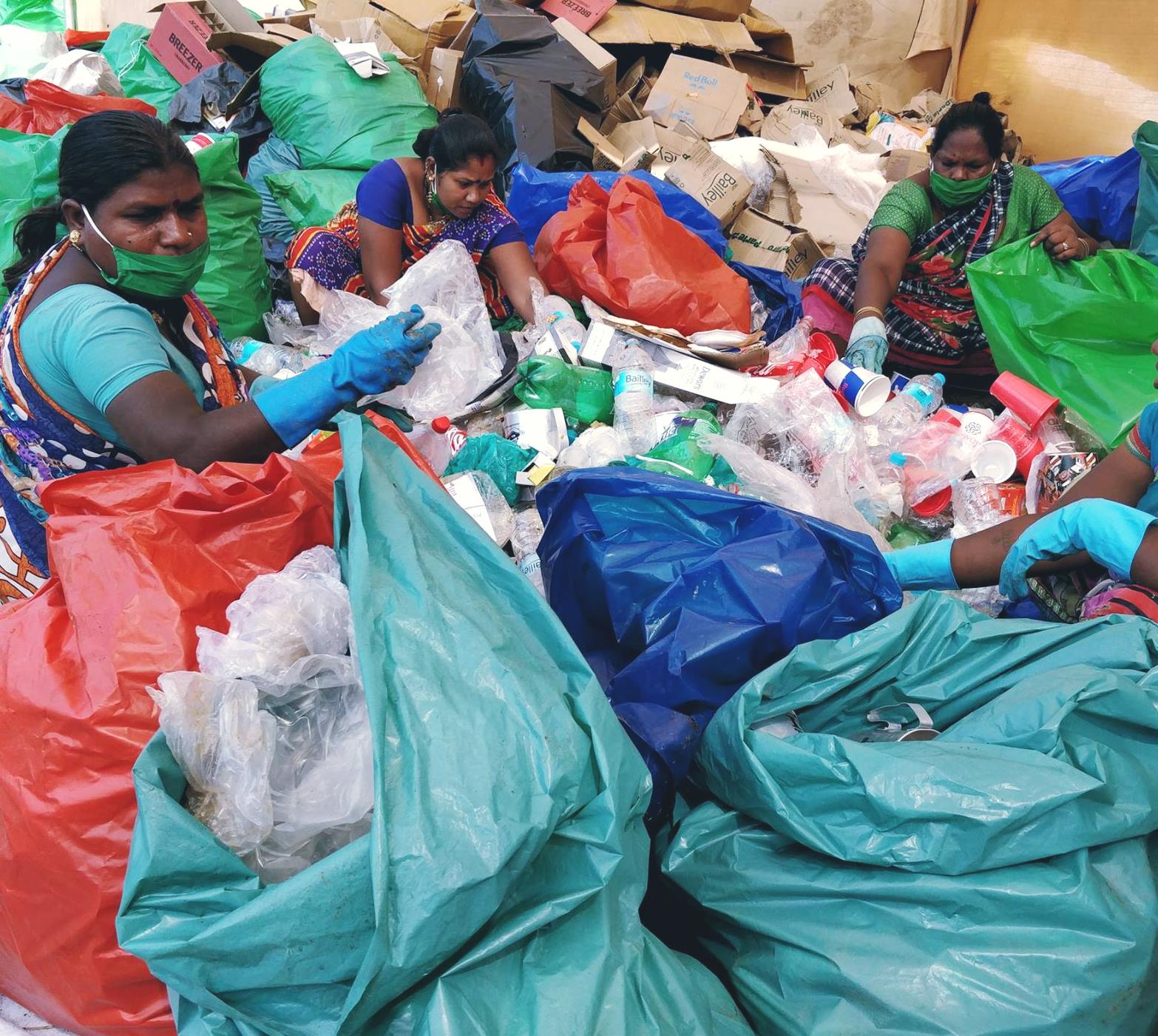
Divya Ravichandran is one of them.
In this exclusive interview with The Better India, Divya speaks about her motivation to start Skrap, its work, and why it’s important for all of us to be equal contributors for a sustainable life.
Being from a defence background, Divya says that it would be appropriate to say that she is from all over India. But ‘home’ for her is Mumbai because she spent considerable time there. Her education and work are poles apart.
So what pushed her to become a social entrepreneur?
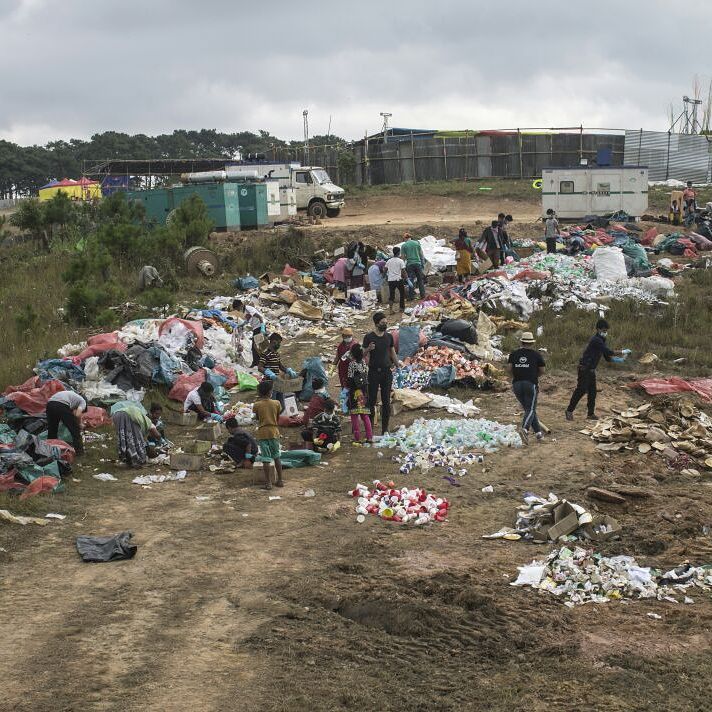
In early 2017, a fire broke out in Deonar, Mumbai, just a few kilometres away from her home.
Recounting that, she says, “The fire raged on for a few days and the smoke lingered within the house for days after the incident. That was when, for the first time, I was confronted by what was actually happening.”
While Divya had started segregating waste before this incident, witnessing the fire and its aftermath only left her convinced about making a change.
“I realised that by taking charge of our own waste, we could solve a larger issue. I started looking at waste in a completely new light. There were several failed attempts before I got it right,” she says.
Visiting a landfill
Before she visited the landfill, she would often drive past it. She shares, “I never realised how much of an environmental problem it was or that those were garbage-dumping grounds. It was so strange to be visiting one, and the sheer volume of the dump caught me unawares. I began to think about how I had contributed to this in some way or the other.”
She goes to say, “I saw kids playing at the landfill, for whom, it seemed like a normal thing to do, like a playground. It was a slushy and scary sight.”
What is Skrap?
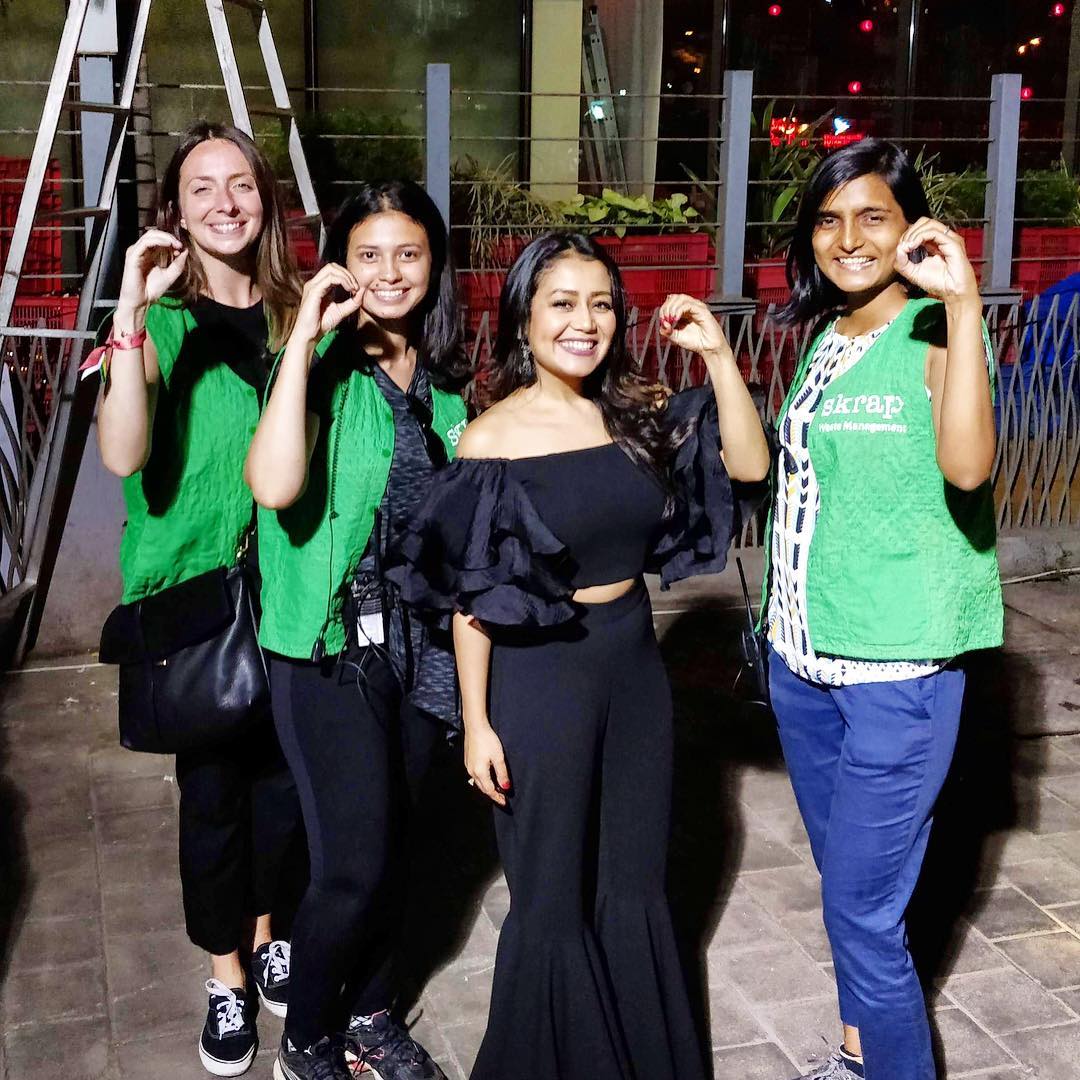
In 2017, post the Deonar fire, Divya founded a startup called ‘Skrap’. This organisation provides end-to-end waste management solutions for large-scale and small-scale-events events, also helping offices manage their waste efficiently.
Explaining end-to-end solutions, she says, “When we take on a particular event, we are on-boarded at the time of the conceptualisation. That way, we have an understanding and say in how waste is managed from the word ‘go’. Once we assess the needs of the event, our work begins.”
When Skrap is called upon to manage a large-scale event, their activities are divided in two phases.
a) Pre-event
1. Assessment: Working with the team to find the non-recyclable items
2. Recommendations: Suggesting a list of compostable and recyclable wares that vendors at the venue could use.
3. Communication: Ensuring that all the stakeholders at the event understand and follow the same guidelines.
b) Event
1. Infrastructure: At the venue, the team ensures that coloured bins are placed at various locations to ensure that the guests can easily dispose of their waste.
2. Training: The housekeeping staff at the venue goes through training to ensure that each one manages waste efficiently.
3. On-ground implementation: Skrap has tie-ups with various NGOs, who with their team of waste-pickers, manage, segregate and sort the waste.
4. Disposal: So far, all the steps are focused on segregating and collecting waste, this is the most important one as it deals with efficient disposal. Excess edible food is distributed, while the remaining is taken for composting or recycling.
You might imagine that the process ends here, but Team Skrap conducts a post-event analysis, which includes a detailed waste audit report, along with the team’s recommendations.
Being a part of almost two dozen big events, which have been attended by over 50,000 people, Skrap is establishing itself as an organisation that brings sustainable event solutions.
Behavioral change
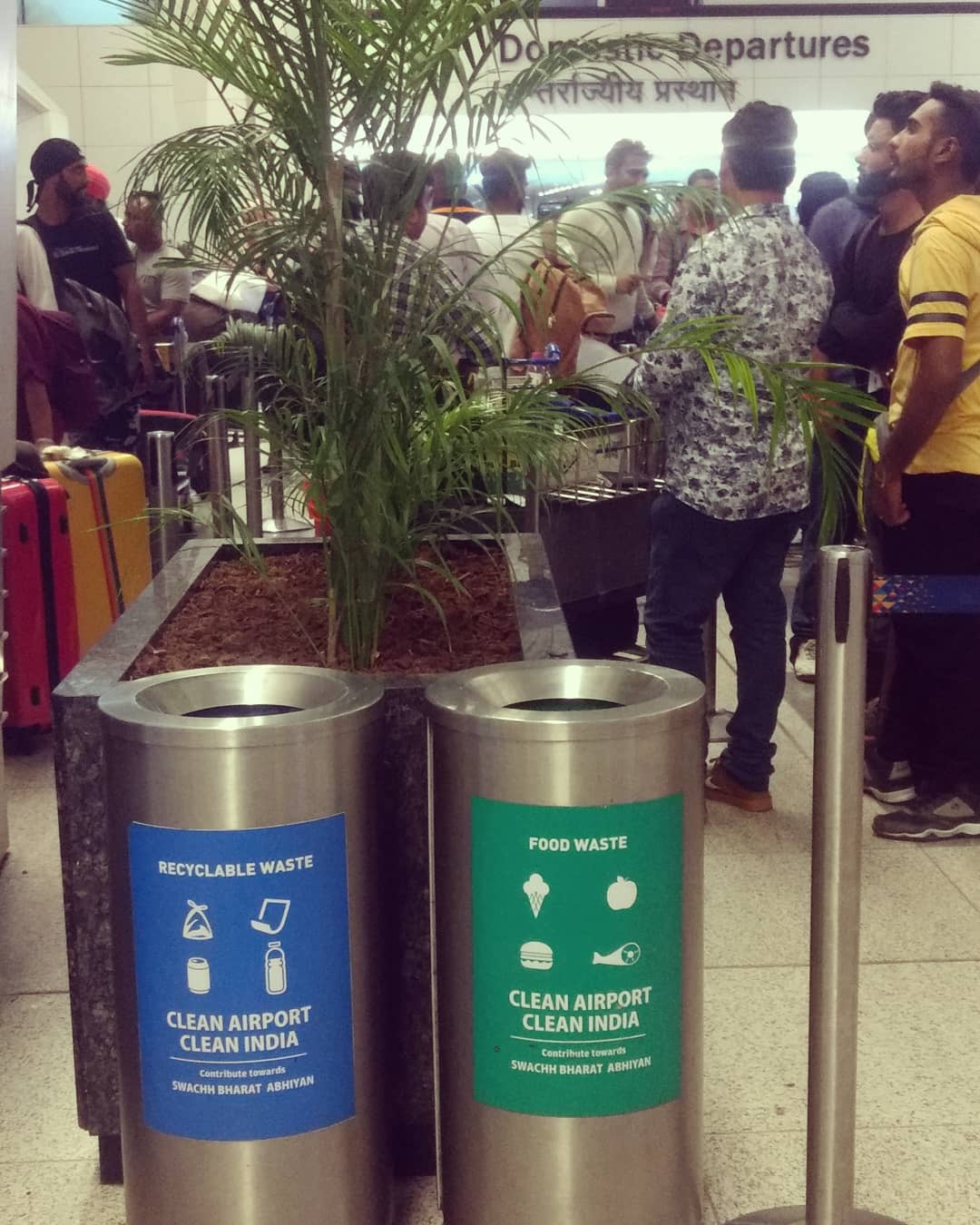
Understanding waste is perhaps the key to making this work, says Divya. Narrating an incident she says, “rather early on when we started working in this area I remember someone dropped a cup into the wet waste bin. When asked why he did that he replied saying he had used it for drinking water and hence was wet.”
It has taken a while but there is now a definite change in behaviour and sensibilities. People are now more mindful of waste and that is a great step forward.
Challenges and pricing
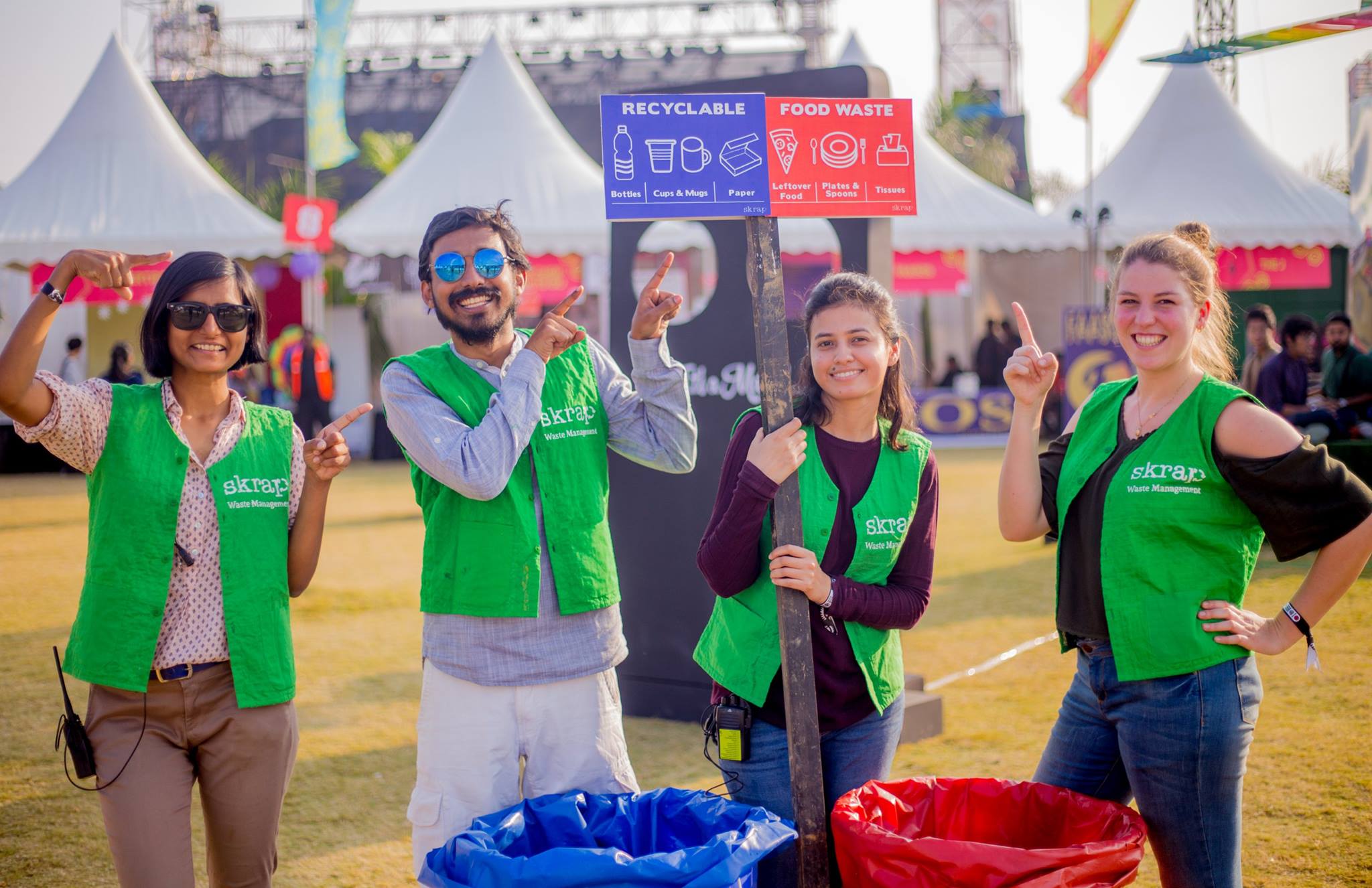
You might think that infrastructure is one of the biggest challenges Team Skrap faced. Divya answers, “When we started, it felt as though no one was willing to come to us and seek help. However, after almost two weeks, people finally began to talk to us. We realised that this was a long-term investment we had to make. The results came in slowly.”
While both the event format and scale of the event is what determines the cost, Divya tells me that the team charges between Rs 40,000 to Rs 3 lakh to manage an event end-to-end.
So far, the organisation has been self-funded with an initial investment of Rs 4 lakh. Although they are presently well-placed, they may look for more support in future.
You May Also Like: With the Help of Residents, This Is How Trivandrum Is Composting Its Own Waste
If you wish to contact team Skrap, you could visit their website here and Facebook page here.
(Edited by Shruti Singhal)
Like this story? Or have something to share?
Write to us: [email protected]
Connect with us on Facebook and Twitter.
If you found our stories insightful, informative, or even just enjoyable, we invite you to consider making a voluntary payment to support the work we do at The Better India. Your contribution helps us continue producing quality content that educates, inspires, and drives positive change.
Choose one of the payment options below for your contribution-
By paying for the stories you value, you directly contribute to sustaining our efforts focused on making a difference in the world. Together, let’s ensure that impactful stories continue to be told and shared, enriching lives and communities alike.
Thank you for your support. Here are some frequently asked questions you might find helpful to know why you are contributing?


This story made me
-
97
-
121
-
89
-
167













